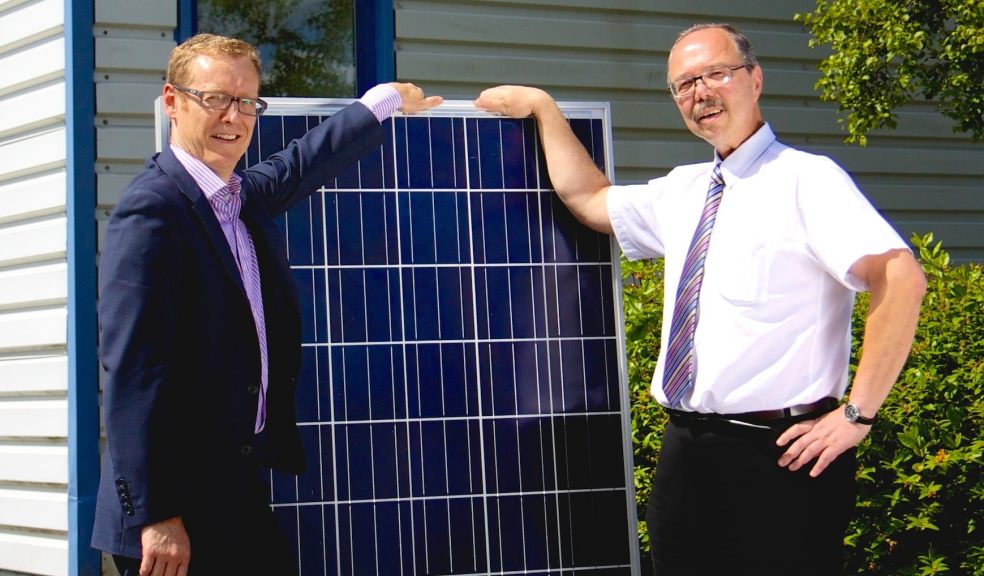
Exeter firm invests in own solar energy
Global electrical and electronic components manufacturer Carling Technologies has completed work on a solar energy installation at its European headquarters in Devon that is expected to reduce the site’s annual CO2 emissions by an estimated 383 tonnes.
The distribution centre in Exeter transports components to industrial vehicle, bus and truck companies throughout Europe, with 80% of its revenue coming from export sales.
Mike Fanzo, General Manager of Carling Technologies in the UK, said the energy cost savings that had been secured by the move to clean energy would support the firm’s expansion plans.
“We are already anticipating growth of 15 to 20% following new contract wins in Europe which will see us building an extra warehouse at our Exeter site to service increased demand,” said Mr Fanzo.
“The reduction in energy costs will support these plans by making additional funds available for investment in our infrastructure and logistics operations.”
Mr Fanzo said the project would also help Carling meet its carbon reduction objectives.
“Sustainability is very important to our business and we operate a variety of green initiatives including a cycle to work scheme.
“As a carbon conscious supplier to Europe’s leading transportation companies we are also helping our clients to meet their own environmental objectives,” he added.
The roof-mounted solar array at Carling was planned and project managed by energy management consultancy Orchard Energy.
“Orchard Energy’s south-west office already worked with Carling on energy procurement, making us ideally placed to facilitate the firm’s plans to install solar PV,” said Simon Pyne of Orchard’s energy solutions team.
“This project required significant investment which made it essential for Carling to have accurate and clearly presented information from us on the technical specifications, green energy options and costs to enable them to make an informed decision on the type of scheme to install.”
Mr Pyne said the five figure investment in the 65kW scheme, which runs across three units, was expected to pay for itself in under six years.
“The installation should reduce the company’s electricity bills significantly, protect it from a volatile and rising energy market and supply the majority of its power needs going forward,” said Mr Pyne.















